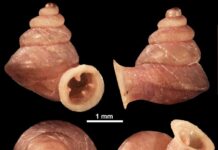A SCIENCE COMMUNICATION session interestingly brought together a geneticist, a futurist, a microbiologist and an environmentalist on one virtual stage. On a virtual webinar platform, the four speakers from the four vastly contrasting fields of science delivered a highly-spirited discussion to an audience consisting of enthusiastic and aspiring science communicators.
The Famelab Webinar hosted on March 13 was organised by the British Council, the Malaysian Industry-Government Group for High Technology (MIGHT), The Petri Dish and The Science Media Centre.
The virtual platform via Microsoft Teams saw all four science communicators delivering an interactive session to feed the curiosity of enthusiastic and aspiring science communicators who joined the session. The speakers gave an insight into FameLab – the largest global science communication competition, how it can be life-changing for Science, Technology, Engineering and Mathematics (STEM) practitioners, and the basic nuances of science communication. The webinar, in fact, turned into a lively tutorial for aspiring FameLab contestants and science communicators.
Who’s a science communicator?
Prof Dr Abhi Veerakumarasivam, the first Asian to win FameLab international in 2016 and also a FameLab judge got the ball rolling by defining science communication. “Science communication is a process in which individuals use established scientific information or new discoveries to raise awareness, perhaps influencing attitudes or even practices. Everyone needs to hear about science and anyone can be a science communicator,” said Abhi, who is the Dean of Medical and Life Sciences Faculty at Sunway University.
Dr Liz Alexandar, a communicator and author of bestsellers, sees science communication as a powerful tool to increase public literacy as it helps the public to make informed decisions such as vaccination and sets the direction for science-based policies and regulations as many policymakers are not trained in STEM.
To Atteleth Don Paris, FameLab 2020 Malaysia Champion and a passionate environmental officer at Berjaya Tioman Resort, science has to be communicated with a call for action. Don did exactly that when he spoke at FameLab 2020 where he emerged as a national champion. He spoke on the importance of mangrove swamps and why everyone has a role to play in its conversion.
Science advancing rapidly, public trust declining
Dr Mahaletchumy Arujanan, from the Malaysian Biotechnology Information Centre who moderated the session, recapped all their perspectives and added on saying that although advancement in science is so rapid, public trust is declining.
“There is no one-rule-fits-all in science communication. Messaging must be customised to suit the objectives, target audience as well as local culture and sensitivities”, said Mahaletchumy who is also a world-renowned science communicator and a FameLab Judge.
Mahaletchumy expressed her disappointment when researchers do not appreciate science communication skills and are more focused on their core research and teaching duties.
“The major problem in science communication is the illusion that communication has taken place. Science communicators have to meet the public at their level and not expect the public to move up to the communicators’ level,” Liz pointed out.
Abhi being a scientist himself shared his take on the limitations faced by scientists for not being at the forefront to communicate science. “There are no incentives for scientists to spend time engaging the public. They are also not trained to communicate to a non-technical audience,” he said. He was, however, quick to add that scientists have a professional and social responsibility to democratise science and engaging with society makes scientists more influential.
This was Don’s response when asked what motivated him to communicate science, “I spent almost four years for my research to do my lab work, on field trips and got into the mud to collect data. While doing my thesis my inner voice asked me who is going to read my thesis, how much limelight will my research get and what is the significance of my discovery. That was when I had the calling to communicate my work to a wider audience”. This led Don to take part in FameLab 2020 and subsequently be the national champion.
Storytellers rule the world
“Storytellers rule the world and the person who repackages and breaks the news to the society gets the limelight”, said Mahaletchumy. “But why can’t the storytellers be the scientists themselves? We need more celebrity scientists,” added Mahaletchumy, who had left the wet laboratories and chose to be a science communicator and later listed as the world’s top 100 most influential people in Biotechnology by Scientific American WorldView in 2015.
Liz who is a seasonal judge for FameLab gave a glimpse of the criteria to win the competition. She cited clarity, content and charisma as the key criteria and referred the audience to the British Council in Malaysia’s website for more videos and FameLab requirements.
Besides, the 3Cs Dr Abhi chipped in a few more elements that FameLab participants have to look into, such as audience targeting, content that the audience wants to hear and last but not least the passion for the topic. “A passionate communicator makes the subject infectious,” beamed Abhi.
Don lent a tip to focus on self-discovery and being yourself during the presentation because the audience could actually see you through the stage if you are being natural or trying to impersonate someone else. The moderator highlighted Don’s presentation at FameLab 2020 on his mangrove research and how he connected with the audience and made his cause relevant to everyone.
‘Do not dumb down science’
Another key tip that came out during the webinar was not to dumb down the science in an attempt to keep it simple. The audience was told that science is still intriguing and the public’s curiosity should be addressed.
Both Don and Abhi also spoke about the masterclasses that were provided to FameLab contestants who qualify for the finals. These are conducted by eminent UK science communicators and the skills imparted are not just for FameLab but is handy for any STEM careers.
Abhi also shared tips on choosing winning topics for FameLab. “Something new and intriguing, or old concepts with new tweaks. Whatever you choose, delivering it with passion is the most important ingredient,” he said.
Both the FameLab champions also shared tips to practice the talk. To Don it was practice, practice and practice, while Abhi concurs, he urged contestants to practice in front of a real audience and not a mirror. Liz added, to practice in an authentic and organic way and not read the script the one has prepared.
Given the importance of science literacy, all panellists agreed that watching FameLab enriches one’s scientific knowledge in a wide range of STEM fields. “As a non-science person, I learn a lot being a judge,” says Liz.
The FameLab competition details were presented by Syauqi Azman from the British Council and he said it will be a virtual competition due to the pandemic. The deadline for video submission is 31st March 2021.
Click this link to watch the full video of the webinar:
Click here for FameLab 2021 details:
https://www.britishcouncil.my/famelab
https://www.cheltenhamfestivals.com/science-/famelab/
What is FameLab?
FameLab was founded in 2005 by Cheltenham Science Festival in the United Kingdom and has since grown into a global competition in partnership with the British Council. It was brought to Malaysia in 2015 by the British Council in collaboration with MIGHT with the objective of addressing the communication gap between scientists and the public. The participants will engage and entertain audiences in a three-minute presentation on their chosen STEM concept. Communicating science in an attractive and comprehensible manner to non-scientific audience promotes science education and inspires future generations of scientists whilst increasing public understanding of complex scientific information concerning their daily lives.
In 2016, Malaysia National Champion, Prof Dr Abhi Veerakumarasivam went on to become FameLab International Champion defeating national winners from 27 different countries. He was the first FameLab International Champion for Malaysia and also for Asia region. Dr. Siti Khayriyyah Mohd Hanafiah, or ‘Kye’, a 33-year old Biological Science lecturer from Malaysia, was crowned the FameLab International 2018 Champion in June 2018.
Globally, FameLab is a successful model in identifying, training and mentoring young scientists and engineers to share their enthusiasm for the subjects with the public. As one of the biggest science communications competitions in the world, FameLab reached out to more than 10,000 scientists and engineers from more than 30 different countries who have competed in FameLab worldwide since 2007 and earned more than 54 million media views each year. It is truly an international event where scientists and engineers from around the world meet, network and engage international audiences whilst broadening their views of what it means to be working in science today.

















